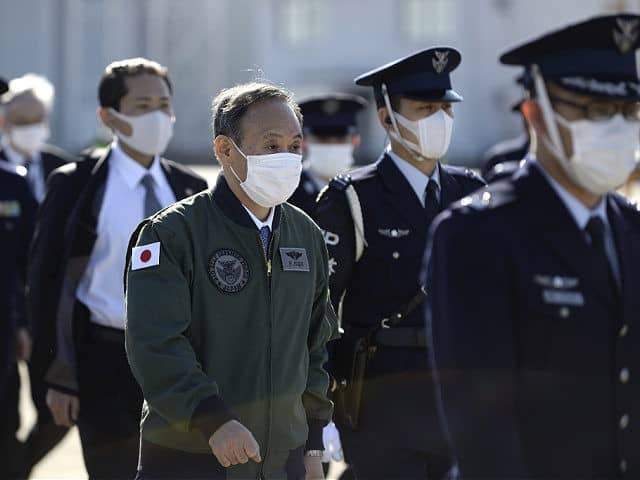Japan Approves Record $52 Billion Military Budget to Counter China

Japan’s government on Monday approved a record defense budget of 5.34 trillion yen ($51.6 billion) for 2021 as part of an effort to counter “security challenges posed by China,” Japanese newspaper the Mainichi reported on December 21.
The newly expanded military budget, up 0.5 percent from 2020, allots $323 million to introduce longer-range missiles in Japan “capable of attacking enemy vessels from outside their firing range.”
Tokyo on December 18 said it would develop new “stand-off” anti-ship missiles capable of targeting warships at greater distances around its southwestern Okinawa islands, including near the disputed Senkaku islets in the East China Sea also claimed by Beijing.
“The security environment around our southwestern islands has become harsh. We have to respond to that in an appropriate way,” Japanese Minister of Defense Kishi Nobuo said at a press briefing last Friday.
Tokyo’s announcement of the plan to develop longer-range missiles marked Japanese Prime Minister Suga Yoshihide’s first major defense policy decision since he was elected to office in September. The missile plan and the budget to back it on Monday come as Japan’s military continues to acquire “air-launched missiles that could be used to hit missile sites in North Korea” and considers adding “strike weapons such as cruise missiles that could reach ground targets in China” to its artillery, Reuters noted at the time.
Japan has grown concerned in recent months over increased Chinese activity in the East China Sea, including repeated incursions into waters around the disputed Senkakus.
Kishi on December 14 said he had “agreed with [his] Chinese counterpart Wei Fenghe to seek the early establishment of a hotline between their officials” to mediate future disputes over the Senkaku Islands, which China claims as the Diaoyus. The two defense ministers discussed the matter during a video conference.
“I strongly requested that no actions be taken that might escalate the situation,” Kishi told reporters after the virtual meeting, according to Kyodo News. Kishi added that “he urged China to refrain from any ‘attempts to unilaterally change the status quo on the back of its might.'”
Tokyo and Beijing “launched a communication mechanism between their defense authorities in 2018 to avoid accidental clashes at sea and in the air,” according to Kyodo News, but the two Asian neighbors “have made little progress” on establishing a hotline since then.
Japan’s new defense budget hit a record high on Monday “for the seventh consecutive year as the country beefs up its ability to also deal with North Korea’s missile and nuclear threats,” according to the Mainichi.
The 2021 military budget directs $706 million toward building a new fighter jet “expected to cost around $40 billion and be ready in the 2030s,” Reuters reported on Monday. Mitsubishi Heavy Industries Ltd., assisted by the Amerian Lockheed Martin Corp., will lead the development of the plane, which is Japan’s first new fighter jet in three decades.
Photo: DAVID MAREUIL/POOL/AFP via Getty Images
Link: Japan Approves Record $52 Billion Military Budget to Counter China (breitbart.com)











